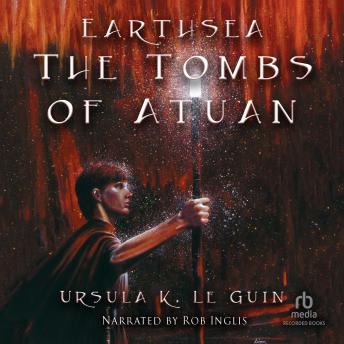

The first few chapters of this were a real chore. Please read this to your kids whomever you may be. Le Guin and the voice I added to the books.

There is only the words of one of our greatest authors, Ursula K.

There is no cultural weight to lead them into playing at Ged and Tenar. There is no big Hollywood movie with toys and a marketing campaign to nudge my kids in this direction. Weird as this may sound, it makes me incredibly proud of them. I decided to let them play, so I left them undisturbed and went back to my game.Ī few days later, I was working in my office and I heard Miloš outside my door talking to Vetch from A Wizard of Earthsea.

They're still seven, only just, and there they were, late in the night, in their bunkbeds, improvising a discussion between the Eaten One and Sparrowhawk. What was different, it turned out, was that Miloš was Ged and Brontë was Tenar, and they were in the dark room of the Great Treasure, playing the Tombs of Atuan. Even obscured I could tell it wasn't the usual joke fest or scary story, there was something different about this talk. Usually I'd just call up to them and tell them it was time to shoosh and go to sleep, but I was curious to figure out what they were talking about. I sat and listened to the door muffled murmurs of Miloš & Brontë, but I couldn't make out what they were saying. Half way through reading The Tombs of Atuan, I was sitting downstairs playing my xBox late at night when I heard voices drifting down from upstairs. The Hainish Cycle reflects the anthropologist's experience of immersing themselves in new strange cultures since most of their main characters and narrators (Le Guin favoured the first-person narration) are envoys from a humanitarian organization, the Ekumen, sent to investigate or ally themselves with the people of a different world and learn their ways. Her interest in non-Western philosophies was reflected in works such as "Solitude" and The Telling but even more interesting are her imagined societies, often mixing traits extracted from her profound knowledge of anthropology acquired from growing up with her father, the famous anthropologist, Alfred Kroeber. She was known for her treatment of gender ( The Left Hand of Darkness, The Matter of Seggri), political systems ( The Telling, The Dispossessed) and difference/otherness in any other form. Her recent publications include the novel Lavinia, an essay collection, Cheek by Jowl, and The Wild Girls. Le Guin published twenty-two novels, eleven volumes of short stories, four collections of essays, twelve books for children, six volumes of poetry and four of translation, and has received many awards: Hugo, Nebula, National Book Award, PEN-Malamud, etc.


 0 kommentar(er)
0 kommentar(er)
